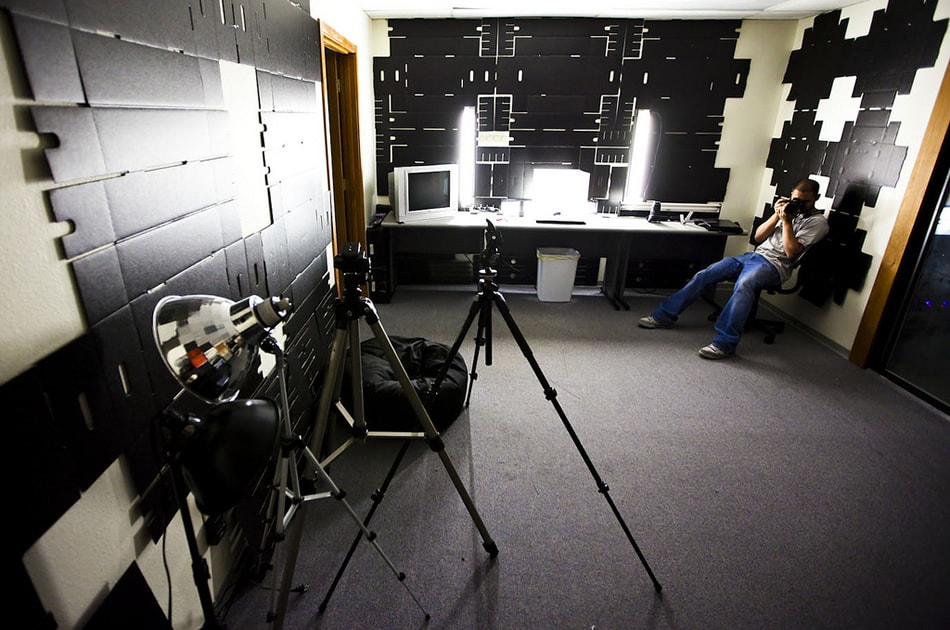How to Break Into Commercial Photography the Easy Way
Commercial photography is shooting images for commercial use. Examples of this lucrative take on photography include images for advertisements, merchandising, and even product placement.
Brochures, flyers, leaflets and restaurant menus also display commercial photography. In short, it’s a pretty diverse and widely used form of photography. The good news about this field is that there’s a lot of demand and plenty of room for different styles of photographs. Whether alternative or traditional photographs, this field craves either.

image by mark sebastian
That’s why broadening out into commercial photography can be well worth your time, but how do you do it without hitting up against too much friction? Read on to find out.
Write That Business Plan
You’re probably saying to yourself right now, “Hold on a second… a business plan is for an actual business with a storefront!” You couldn’t be more incorrect if that’s what you really said. Commercial photography can be your one-person business if you get really good at it and expand your client base. That’s why writing a business plan for your aims is a smart idea.
Let’s say you’re going to do corporate-brochure commercial photography. Well, identify who your target audience is going to be. From there, brainstorm timetables and various fees for specific project completions – you’ll want to know exactly how to respond to different leads that come through your sales funnel.
Then, think about the marketing aspect.
Create a Marketing Strategy
These days, any good marketing strategy goes through the internet where it’s cheaper to produce than a traditional ad campaign (TV and radio ads, anyone?), and the ROI can be very good. The key is being yourself when you sell yourself to possible leads and clients.

image by SparkFun Electronics
Social media is always a reliable choice, whether that’s Twitter, Facebook, Pinterest or Instagram (the last two being particularly well-geared to photography because of their image-based nature).
Of course, any online marketing strategy can only go so far, which is why the next step should be relying on good, old networking.
Try In-Person Networking
Online marketing can be highly effective, but to take up your entry into commercial photography by another notch, nothing beats in-person networking. You see, people are still addicted to connecting in person because they can actually see, touch and get a better sense of the photographer with whom they’re dealing. Though it sounds corny, we are social creatures in every sense of the word.
Try tactics like scheduling meetings with ad agencies to set yourself apart from the vast majority of other commercial photographers out there. Sure, it might take several meetings before you get any agency interested in you, but all it takes is that one phone call after all of your efforts…
Another great tactic is hanging out and around with more established commercial photographers than you. You’ll pick up pointers on how things are done and get exposed to a bigger network than you could ever imagine. If you have a hard time swallowing your pride, then, too bad.
Branch out Into Many Areas
It stands to reason that you’ll do better if you have more tools in your arsenal. That’s why you should never stop expanding your skillset, particularly because there are many subsets in commercial photography.
It’d do your budding career good if you focused on expanding into areas like product photography, business promotion, portrait photography, fashion photography and food photography (as in, shooting food for menus).
Note that this is a great strategy for the beginning, when you’re just getting your foot in the door of commercial photography. Over time, though, you’ll see how naturally you’ll just home in on the one or two commercial photography areas that suit you best (and which give you the most work).

image by Vladimir Agafonkin
Join a Group of Like-Minded Photographers
One of the most efficient methods of breaking into anything in life is to surround yourself with like-minded people who will inevitably support you and set you up with new opportunities because of your common bond.
When you’re a budding commercial photographer, this means joining a group like the American Society of Media Photographers or ASMP. Not only is this great for networking as well, but it only demands a small, financial investment on your part.
After all, the more people know about you, the likelier it is that a new lead could one day come calling. And that’s exactly where you want to progress: being found by more and more people, companies, organizations and event organizers.
Take Care of the Business Side of Things
Now that you’re off to the races in your new venture, it’s vital to also have all the basics in place that are related to business. Should you have only dabbled in amateur photography before making your move into professional commercial photography, you likely don’t have a dedicated business account yet. Get one as soon as possible!
Take your new venture seriously by being exceptionally well-organized. By dividing your income and expenses into separate business and personal channels, you’re helping yourself for next tax season while also empowering yourself to handle your monthly bookkeeping more efficiently than ever.
It Can Be Lucrative
People break into commercial photography because it can be a really good source of steady income. If you’re serious about having a professional photography career, there can be no better niche to start. When you take this road in your photography life, you’re really going to have to look at it as a business decision more than anything else.
Still, that’s not saying that you should turn your back on the creative and artistic side of photography. After all, you’ll still have to fall back on the finer points of composition, setting up your shot, lighting and shading, and lots of other considerations when you perform commercial photography.
It’s just that commercial photography probably gives the average photographer a better shot at making money than other forms of photography. That’s why you should treat it as a business from the get go.
When you do, you’ll be that much better prepared to handle all the fun challenges, new opportunities and responsibilities when your career takes off.
